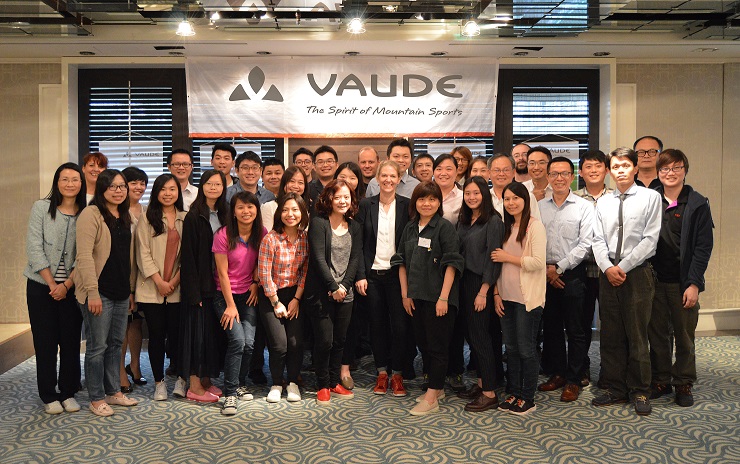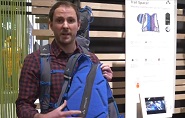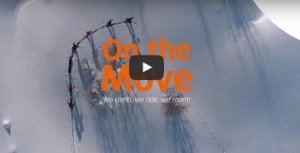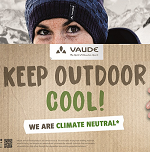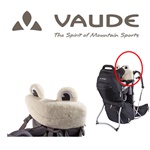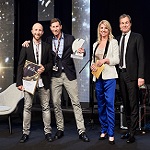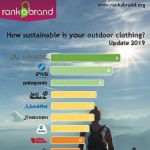The large scale “Environmental Stewardship in the Supply Chain” project has just finished a two-year run and the mountain and bike sports outfitter VAUDE is reporting positive results. The pilot project, which was partially financed with grants, was aimed at educating Asian suppliers on the issues of environmental protection, energy stewardship and emissions management.
Supply chains in the textile industry are often long and complex. An outdoor jacket consists of about 50 different components, which are made by suppliers and delivered to a production facility that then assembles the jacket. These suppliers were the focus of the pioneer project “Environmental Stewardship in the Supply Chain”, which VAUDE launched in 2015 to establish high environmental standards and maximum resource efficiency in this part of the supply chain as well. “We want to create transparency throughout the entire supply chain and, for each individual component of our products, achieve the greatest possible certainty that it was made with fair and environmentally friendly production,” said Antje von Dewitz CEO, describing the motivation for the project.
Together with external experts for occupational safety, quality management and environmental management at Arqum, training and workshops took place over a period of two years under the motto “helping people help themselves.” The project was designed and directed by Bettina Roth, Head of Quality and Chemicals Management at VAUDE. Employees from management and production organization at eight suppliers participated in a series of six units. In addition, individual consultations were carried out on site during 36 factory visits altogether to develop tangible improvement measures.
At the end of May 2017, VAUDE CEO Antje von Dewitz made a week-long trip to Asia to get a firsthand look at the project’s successes and to present all participants with a VAUDE Award for goal achievement at a final event. “I am delighted that the project has brought so many measurable results and sustainable improvements for our partners, for us and for the environment. It shows that with collective determination, an ideological goal can be professionally implemented when we succeed in convincing the participants of the importance of the issues.” she concluded.
Tangible results. Thanks to the voluntary participation of our largest suppliers, 80% by volume of the primary materials and lining fabrics that VAUDE uses are already covered by the pilot project. Participant’s appreciation for the project was enormous because they quickly recognized the benefits and specific improvement opportunities on offer in the very practical workshops. In exchanges with other participants, the know-how mediated by VAUDE and the experts at Arqum could be directly put into practical action. “The enthusiasm during the workshops was really contagious and went even so far that, recognizing not only the significance and benefits of sustainability issues within their own processes, the participants also want to raise awareness of their suppliers as well,” said Bettina Roth. Overall, there are already a total of 100 improvement measures regarding technology and organization undergoing implementation. All suppliers were invited to the final event in Taipei (Taiwan) where each of the eight participating companies presented its best practices to a large audience.
These measures have led to the conservation of 550 metric tonnes of waste, 5,500 m³ of water and 18 million kWh of energy. CO2 emissions could be reduced per year by about 5,000 tonnes. Not only did the environment profit, but also the factories themselves – they saved on the cost of energy, resources and materials amounting to an average of 50,000 euros per year. “The results are impressive and show quite clearly that a factory’s commitment to sustainability also pays off in financial terms. With this project, we could also demonstrate that with coordinated and partnership-based collaboration, the demanding requirements within the industry can become more efficient and be addressed more effectively than by many isolated, individual measures,” said Jens Haubensak, Managing Director of Arqum GmbH.
Reductions were achieved through measures such as insulating pipes, shutting down hydraulic pumps when not in use, introducing LED lighting, using energy from solar panels and heat recovery as well as modernizing obsolete systems. In addition to an increase in energy efficiency, measures for occupational safety and the improvement of working conditions in the factories – such as translating safety instructions into the local languages as well as training on the issues of protective work clothing and chemical handling – were covered. The most important achievement was the introduction of a professional chemicals management system for many of the participating factories. This primarily covered issues such as the automation of processes as well as storage, transportation and disposal of chemicals.
What will follow? “Our goal is to roll out the project over the next few years for all material suppliers,” said VAUDE CEO Antje von Dewitz. “In addition, we want to win over our competitors and industry association so that they’ll work together with us to promote the issue,” Bettina Roth added. But that is still not enough: As a founding member of the “Alliance for Sustainable Textiles” VAUDE is using this project as a role model for best practices which could provide momentum for the entire textile industry. The “Environmental Stewardship in the Supply Chain” project was promoted by the Federal Ministry for Economic Cooperation and Development (BMZ) and financially supported by the German Investment and Development Company (DEG) under the auspices of the “develoPPP.de” program.
Learn more about the pilot project.
INFO: VAUDE


